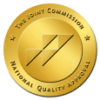Outpatient treatment in Tennessee is designed for people who need real help but can’t put their whole life on hold. You can keep living at home, show up for work or school, and still get structured support that helps you stop using and stay steady.
For many people, outpatient treatment Tennessee is the option that makes recovery feel possible instead of impossible.
Outpatient rehab in Tennessee is not the same thing as trying to white-knuckle sobriety between occasional appointments. A solid outpatient addiction treatment Tennessee program gives you consistent therapy, practical relapse prevention skills, and a clear plan for what to do when cravings, stress, and triggers hit in the real world.
It can also be the right next step after higher-level care, when you are stable enough to return home but still need a lot of support.
At Tennessee Detox Center, outpatient drug rehab in Tennessee and outpatient alcohol rehab in Tennessee are designed to meet people where they are. Some clients need a higher-intensity schedule at the start, then step into fewer sessions as they build momentum.
Others start outpatient care because they have a stable home, strong motivation, and the ability to show up consistently. If mental health plays a role, outpatient treatment for dual diagnosis Tennessee options matter, because anxiety, depression, and trauma symptoms can lead to relapse when they are ignored.
The goal is simple: help you build recovery that holds up in everyday life, not just inside a treatment setting.

What Is an Outpatient Treatment Program for Addiction in Tennessee?
An outpatient treatment program in Tennessee is a structured approach to recovery where you attend scheduled treatment sessions while continuing to live at home.[1] Instead of staying overnight in a facility, you come in for therapy and support, then go back to your normal environment.
That is what makes outpatient treatment for addiction in Tennessee both challenging and powerful. You are learning skills and then immediately using them in the same places where your old habits used to run the show.
Outpatient substance abuse treatment in Tennessee can include individual therapy, group therapy, family sessions when appropriate, and education that helps you understand how addiction works in the brain and in daily routines. Many programs also build in accountability and ongoing check-ins, so progress is not based solely on willpower.
When it’s clinically appropriate, outpatient medication-assisted treatment in Tennessee can be part of care as well, especially when cravings or withdrawal-related symptoms make early recovery harder to sustain. The point is not to “do outpatient” as a box to check.
The point is to give you enough structure, clinical support, and repetition to create real change.
Outpatient Treatment in Tennessee: How It Works
Outpatient Treatment in Tennessee usually starts with one question: What level of support does someone actually need to stay safe and consistent right now?
A good outpatient program does not just hand someone a schedule and hope it sticks. It builds a plan around real risk factors, real responsibilities, and the patterns that keep pulling someone back to using.
Most outpatient treatment Tennessee plans follow the same general flow, even if the exact schedule varies by program.
Step one: Assessment and a clear starting point
Before someone starts outpatient addiction treatment Tennessee, there should be an intake that looks at more than just what substance is involved. The goal is to figure out what is driving use, what is likely to trigger relapse, and whether outpatient care is clinically appropriate.
That assessment typically covers:
- Substance use history and current use patterns
- Withdrawal risk and any recent detox needs
- Mental health symptoms, including depression, anxiety, PTSD, and mood swings
- Trauma history, especially when substance use is tied to sleep, hypervigilance, panic, or emotional numbness
- Medical needs and medications
- Home stability, including whether the living situation supports recovery
- Work, school, parenting responsibilities, and transportation realities
This is also where outpatient treatment for dual diagnosis Tennessee planning matters. If someone has untreated mental health symptoms, outpatient can still work, but only if the plan addresses those symptoms directly.
If trauma plays a major role, outpatient addiction treatment for trauma Tennessee should be paced correctly, with stabilization and coping skills first, not rushed into heavy processing before someone has tools.
Step two: Building the weekly structure
Once the starting point is clear, the outpatient program Tennessee schedule gets built around intensity. Some people need more contact early on, then step down as they stabilize. Others start lower intensity and increase support if cravings, relapse risk, or life stress spikes.
In outpatient substance abuse treatment Tennessee, structure usually includes a mix of group sessions and individual sessions.
Group work is often the backbone because it provides repetition, accountability, and real-time practice with coping skills. Individual therapy is where deeper patterns get addressed, including trauma, grief, family dynamics, shame, and the thinking traps that keep substance use going.
If the program includes outpatient medication-assisted treatment Tennessee, the schedule also needs to support that. Medication is not a standalone solution. It works best when it’s paired with counseling, monitoring, and a plan for what happens when cravings and triggers show up outside of session hours.
Step three: What you actually do in outpatient sessions
People hear “outpatient rehab Tennessee” and assume it’s just talking about addiction once a week. That’s not what effective outpatient care looks like. A quality outpatient addiction treatment program in Tennessee is skills-focused and behavior-focused. The conversations should translate into actions.
A typical outpatient drug rehab Tennessee or outpatient alcohol rehab Tennessee plan will usually include:
- Therapy that targets the reasons behind use, not just the behavior
- Relapse prevention planning that’s specific, not generic
- Coping skills that match the person, such as stress tolerance, emotion regulation, urge surfing, and communication tools
- Trigger mapping, meaning identifying what sets off cravings and what to do next
- Accountability systems that help people stay honest and consistent
- Family involvement when it’s helpful and safe
- Coordination with mental health care when symptoms are part of the relapse cycle
For drug and alcohol outpatient Tennessee care, it is also common for programs to include some form of monitoring, which can consist of check-ins, progress reviews, and testing policies.
The best programs use these tools as support, not as punishment. The point is to catch slips early and tighten the plan before they become full relapses.
Step four: Tracking progress and adjusting the plan
Outpatient program for substance use Tennessee care should not be static. If someone is improving, the plan should evolve to support independence. If someone is struggling, the plan should tighten rather than wait for a crisis.
Progress is usually tracked through a mix of practical markers:
- Attendance and consistency
- Cravings and trigger frequency
- Sleep, mood stability, and stress tolerance
- Relationship stability and daily functioning
- Substance use status, including any slips
- Engagement in recovery supports outside of sessions
This is also where stepping up or stepping down comes in. Outpatient rehab in Tennessee can be a starting point for some people, but it can also be part of a longer continuum that includes higher intensity care when needed.
The strongest outpatient plans include a clear “if-then” safety plan. If relapse risk spikes, if mental health deteriorates, if withdrawal becomes a concern, then the plan changes.
Step five: Planning for real life, not just graduation
The last part of outpatient treatment in Tennessee, and the part that too many people skip, is planning for what happens when the structure eases. Early recovery can feel manageable when there is a clear weekly schedule and constant reinforcement.
The real test often comes later, when routine stress, conflict, boredom, or sleep issues return.
That’s why outpatient aftercare Tennessee planning should start early, not at the end. Aftercare is where long-term stability gets built. It can include continued therapy, ongoing group support, alumni programming, medication management follow-through when relevant, and a plan for what to do during high-risk weeks.
The outcome goal is not just “finish outpatient.” The goal is to build a routine that holds up when motivation dips and life gets loud again.
Types of Outpatient Addiction Treatment in Tennessee
Outpatient treatment in Tennessee is not one single program. It’s a range of options, from higher structure to lower structure, depending on what someone needs to stay consistent. [2] Some people do best with a more intensive schedule at first, then reduce session frequency as cravings settle and routines stabilize.
Others start with standard outpatient care because they are stable, have support at home, and mainly need accountability plus therapy.
Below are the outpatient options people search for most often, including the specific types this page needs to cover.

Partial Hospitalization Program (PHP) in Tennessee
Our Partial Hospitalization Program (PHP) is the most intensive form of outpatient treatment, providing a high level of care for individuals who need significant support but don’t require 24-hour supervision. Clients in our PHP typically attend treatment 5-7 days per week for 6-8 hours each day. This program includes:
- Daily group therapy sessions
- Individual counseling
- Medication management
- Psychoeducational groups
- Holistic therapies
- Aftercare planning

Intensive Outpatient Program (IOP) in Tennessee
An intensive outpatient program in Tennessee, IOP, is designed for people who need more than a once-a-week appointment but do not need 24-hour supervision. It is a common fit for someone stepping down from a more structured level of care, or for someone who is still early in recovery and knows they need a lot of support to avoid slipping.
IOP is often group-focused because groups create repetition and accountability. You are not only talking about problems. You are practicing skills, getting feedback, and learning how to handle real situations without falling back into old habits.
Most IOP schedules meet multiple days per week, and the time commitment is meaningful. That is the point. It creates structure without requiring someone to live on-site.
What IOP can be especially good for:
- People who have tried to quit on their own and keep cycling back
- People who have had a recent relapse and need a reset, without leaving home
- People who are stepping down from detox or inpatient care and want to keep the momentum
- People with moderate cravings, moderate triggers, or a home environment that is not perfect but is workable
When someone is comparing outpatient rehab Tennessee options, IOP is often the level that makes outpatient feel “real” because it’s frequent enough that recovery stays front and center while the brain is still rewiring.
Quality matters here. A strong intensive outpatient program in Tennessee should include a clear plan, a predictable schedule, licensed clinicians leading sessions, and measurable goals that get reviewed over time.
It should also include a step-up plan if someone is not stabilizing, because the goal is not to force outpatient work when someone needs more support.

Standard Outpatient Program in Tennessee
Outpatient aftercare in Tennessee helps recovery last beyond the initial push. People often think of aftercare as something you do once you are “done.” In reality, it is the part that keeps progress from fading once life gets busy again.
Aftercare can look different for each person, but the purpose remains consistent: maintain support, accountability, and keep relapse prevention active. [3] That might include ongoing therapy, groups, alumni support, recovery coaching, community support meetings, or check-ins that help someone stay honest when motivation dips.
The reason outpatient aftercare in Tennessee matters is simple. Most relapses don’t start with a decision to throw everything away. They start with small drift: skipping sessions, sleeping poorly, isolating, becoming overwhelmed, becoming too confident, or becoming worn down. Aftercare is where those patterns get spotted early and corrected.
A good aftercare plan also includes a real response plan. What happens if cravings spike? What happens if sleep falls apart? What happens if someone slips? Who do they call, and what is the next step? When aftercare is clear, a slip is more likely to become a course correction rather than a spiral.

Outpatient Medication Assisted Treatment Tennessee
Outpatient medication-assisted treatment Tennessee refers to the use of certain medications, combined with counseling and structured support, to help people reduce cravings, stabilize brain chemistry, and stay engaged in recovery. It is most commonly discussed for opioid and alcohol use, but medication support can show up in other ways, too, depending on clinical needs.
It is important to be blunt about what medication-assisted treatment is and is not.
It’s not a shortcut. It doesn’t replace therapy. It doesn’t magically fix the reasons someone used. What it can do is lower the volume on cravings and withdrawal-related symptoms so the person can actually participate in treatment, show up consistently, and build skills that stick.
In outpatient settings, medication support works best when it’s paired with:
- Regular clinical monitoring
- Counseling that addresses triggers and relapse patterns
- A plan for adherence, side effects, and safety
- Coordination with mental health care when needed
If someone is looking for outpatient treatment for addiction Tennessee, and cravings have been a major reason they cannot stay stopped, outpatient medication-assisted treatment in Tennessee may be worth asking about. [4]
The right fit depends on medical history, substance use history, and overall stability, so it needs to be handled by qualified professionals.

Outpatient Treatment Dual Diagnosis Tennessee
Outpatient treatment for dual diagnosis in Tennessee is for people dealing with both substance use and mental health symptoms at the same time. This is not a niche situation. It’s common.
A lot of people use substances to numb anxiety, calm panic, sleep, cope with depression, or feel normal in social situations. Then the substance use makes those symptoms worse, which pushes more use.
Dual diagnosis care matters because treating only the substance use side often fails. [5] If someone stops using but still has panic attacks, insomnia, intrusive memories, or deep depression, the brain will go looking for relief. Without tools and treatment, relapse starts to feel like the only option.
Outpatient treatment dual diagnosis Tennessee programs should screen for mental health needs early and have a clear plan for how those needs will be addressed. That may include therapy approaches that support mood stability, emotion regulation, and coping skills. It can also include medication management coordination when appropriate.
A practical tip for readers is to ask a direct question: “If my anxiety or depression gets worse during treatment, what is the plan?” A quality program has a specific answer, not a vague one.

Outpatient Addiction Treatment for Trauma Tennessee
Outpatient addiction treatment for trauma in Tennessee is important because trauma can keep the body in a constant threat state, even when life looks fine from the outside. That threat state can show up as irritability, hypervigilance, panic, dissociation, numbness, insomnia, or feeling unsafe in your own skin. Substances can feel like they turn that off, which is why trauma and addiction so often travel together.
Trauma-informed outpatient care should start with safety and stabilization. That means building coping tools first, learning how to regulate the nervous system, and creating a plan for what to do when triggers hit.
For some people, deeper trauma processing can happen in outpatient care. For others, it’s safer to start trauma work in a more structured setting, then continue it later once sobriety is stronger.
What people should look for is not a program that promises to “dig into trauma fast.” What they should look for is a program that respects pacing, prioritizes stability, and treats trauma as part of the recovery picture, not as a buzzword.

Outpatient Drug Rehab Tennessee
Outpatient drug rehab in Tennessee usually refers to outpatient treatment focused on drugs like stimulants, opioids, benzodiazepines, or other substances, sometimes alongside alcohol. Many people searching for drug and alcohol outpatient Tennessee options are dealing with more than one substance, and that changes what treatment needs to address.
Outpatient can be a strong fit for drug use when the person is medically stable, their living situation is safe enough, and they can follow the schedule. It also helps when there is some accountability in place, because the early brain patterns around drug cravings can be intense and impulsive.
A good outpatient drug rehab plan in Tennessee plan focuses on more than stopping use. It focuses on trigger management, relapse prevention, decision making under stress, and building a routine that makes using harder to justify.
If someone is looking at outpatient drug and alcohol outpatient Tennessee care, the best question to ask is whether the program can address the full picture, not just one substance.

Outpatient Alcohol Rehab Tennessee
Outpatient alcohol rehab Tennessee can work well for the right person, but alcohol is also one of the substances where safety screening matters most. Alcohol withdrawal can be dangerous, so anyone seeking outpatient treatment Tennessee for alcohol use should be medically assessed first.
If someone has a history of severe withdrawal symptoms, seizures, hallucinations, or delirium, that is not a “power through it” situation. That is a medical situation.
For medically stable people, outpatient alcohol rehab Tennessee can offer strong support through therapy, relapse prevention planning, and medication support when appropriate.
Alcohol use is often tied to stress coping, sleep, social pressure, and emotional regulation.
Outpatient care gives people a place to work on those drivers while still living in the same environment where the urges tend to show up.
In practice, alcohol outpatient care is often most effective when it includes a clear plan for high-risk times, like weekends, events, conflict at home, or work stress. It is not enough to say “avoid triggers.” People need a plan for what to do when triggers are unavoidable, because they usually are.

Comprehensive Assessment
Upon entering our outpatient program, each client undergoes a thorough evaluation conducted by our team of addiction specialists and mental health professionals. This assessment helps us understand the full scope of the individual’s substance use disorder, any co-occurring mental health conditions, and personal history. Based on this information, we develop a personalized treatment plan that addresses the client’s specific needs and goals.
Evidence-Based Therapies
The core of our outpatient treatment program consists of evidence-based therapeutic interventions designed to address the underlying causes of addiction and develop healthy coping skills. Some of the therapies we offer include:
- Cognitive Behavioral Therapy (CBT)
- Dialectical Behavior Therapy (DBT)
- Motivational Interviewing
- Trauma-Informed Therapy
- Contingency Management
- Mindfulness-Based Relapse Prevention

Group Therapy and Peer Support
Group therapy sessions play a crucial role in our outpatient programs. These sessions provide opportunities for clients to share experiences, offer mutual support, and practice new social skills in a safe environment. Our skilled facilitators guide discussions on topics such as:
- Relapse prevention strategies
- Stress management techniques
- Healthy communication skills
- Emotional regulation
- Building a sober support network

Individual Counseling
Regular one-on-one sessions with a dedicated therapist allow clients to explore personal issues in depth, work through challenges, and develop individualized coping strategies. These sessions also provide an opportunity to track progress and adjust treatment plans as needed.

Family Therapy
Recognizing the important role that family dynamics play in recovery, we offer family therapy sessions as part of our outpatient programs. These sessions help improve communication, rebuild trust, and educate family members about addiction and recovery.
Medication Assisted Treatment
Evidence-based medications enhancing recovery, alleviating cravings, and promoting long-term sobriety.

Life Skills Training
Developing practical life skills is essential for maintaining long-term recovery. Our outpatient programs include training in areas such as:
- Financial management
- Job readiness and career planning
- Time management and goal-setting
- Healthy lifestyle choices (nutrition, exercise, sleep hygiene)
- Stress management and self-care techniques

Holistic and Experiential Therapies
To support overall well-being and provide a well-rounded recovery experience, we offer a variety of holistic and experiential therapies as part of our outpatient programs, including:
- Mindfulness and meditation practices
- Art and music therapy
- Yoga and tai chi
- Nutritional counseling
- Acupuncture

Aftercare Planning and Alumni Support
As clients progress through our outpatient programs, we work closely with them to develop comprehensive aftercare plans. These plans may include recommendations for ongoing therapy, support group participation, and other resources to support long-term recovery. We also offer an active aftercare program that provides continued support and community connection after formal treatment ends.
The Benefits of Outpatient Treatment in Tennessee
Choosing an outpatient addiction treatment program at Tennessee Detox Center offers numerous advantages for individuals seeking to overcome substance use disorders:
- Flexibility: Clients can maintain work, school, or family commitments while receiving treatment.
- Real-world application: Individuals can immediately apply newly learned skills to their daily lives.
- Cost-effective: Outpatient care is generally more affordable than residential treatment.
- Family involvement: Clients can maintain close contact with supportive family members throughout treatment.
- Gradual transition: Outpatient care programs like PHP and IOP allow for a smoother transition from more intensive levels of treatment to independent living.
- Community connection: Clients can build and maintain connections with local recovery communities.
- Personalized care: Treatment plans can be easily adjusted to meet changing needs and circumstances.
- Long-term support: Outpatient programs can provide ongoing care and support for extended periods.
Is Outpatient Addiction Treatment Right for You?
While outpatient treatment can be highly effective for many individuals struggling with substance use disorders, it’s important to determine if this level of care is appropriate for your specific situation. Factors to consider include:
- Severity of addiction
- Presence of co-occurring mental health conditions
- Stability of home environment
- Level of motivation and commitment to recovery
- Availability of strong support system
- Ability to maintain abstinence outside of treatment setting
Our admissions team at Tennessee Detox Center is available to discuss your individual needs and help you determine if our outpatient treatment programs are the right fit for you or your loved one.
Why Choose Tennessee Detox Center for Outpatient Care?
Outpatient Treatment in Tennessee can be a strong fit when you need real structure while you safely live at home and show up consistently. The keyword there is consistently. Outpatient care works when you can keep your commitments, even on the days you feel tired, irritated, anxious, or tempted to disappear.
Most people looking at outpatient program Tennessee options fall into one of two categories. They either want help before things get worse, or they are stepping down from a more intensive level of care and need support to stay stable while life ramps back up.
Outpatient addiction treatment Tennessee often works best when a few basics are in place.
- You have a safe place to live, and it is not full of constant substance use.
- You can reliably get to sessions, whether that means transportation, childcare, time off work, or a schedule that works for you.
- You are medically stable, meaning you are not at high risk for dangerous withdrawal at home.
- You are willing to be honest, even when you feel ashamed, defensive, or afraid of consequences.
- You need support that is structured and consistent, but you do not need 24-hour supervision.
This is where outpatient rehab in Tennessee can be a practical middle ground. It gives you more than occasional therapy, but it still lets you live your life while you build recovery skills in real time.
A lot of people are most vulnerable right after detox or residential care. Motivation can be high, but routines are still shaky, sleep is still off, and stress tolerance is still low. Outpatient treatment in Tennessee can help bridge that gap so you are not trying to hold everything together with willpower alone.
If you are stepping down into outpatient drug rehab in Tennessee or outpatient alcohol rehab in Tennessee, the right outpatient plan can help you keep momentum. At the same time, you rebuild work, family, and daily life.
Outpatient treatment for addiction in Tennessee is not the safest starting point for everyone. If a person cannot stay safe between sessions, outpatient is not the right match, at least not yet.
Outpatient might be the wrong level of care if:
- Withdrawal risk is high, especially with alcohol or benzodiazepines.
- Relapse risk is high, and the home environment is actively triggering, unstable, or full of access to substances.
- There are serious mental health symptoms that are not controlled, such as suicidal thoughts, psychosis, or severe mood instability.
- Substance use has become so compulsive that the person cannot reliably make it to treatment or stay abstinent between sessions.
A good program will say this clearly. The goal is not to force outpatient to work. The goal is to get you into the level of care that gives you the best chance of stabilizing.
This is where placement matters even more. Outpatient treatment for dual diagnosis Tennessee can work very well for people who have anxiety, depression, PTSD symptoms, or other mental health needs, as long as those needs are addressed as part of the treatment plan.
The same goes for outpatient addiction treatment for trauma Tennessee. Trauma-informed outpatient care can be helpful, but it must be paced appropriately. If symptoms are intense and your nervous system is constantly on edge, you may need a more structured setting first, then continue trauma work once you are steadier.
If cravings are a major obstacle, outpatient medication-assisted treatment Tennessee may also be part of the conversation, depending on your history and what is clinically appropriate.
Medication can lower the volume on cravings for some people, but it works best when it is paired with therapy, accountability, and a plan for real-world triggers.

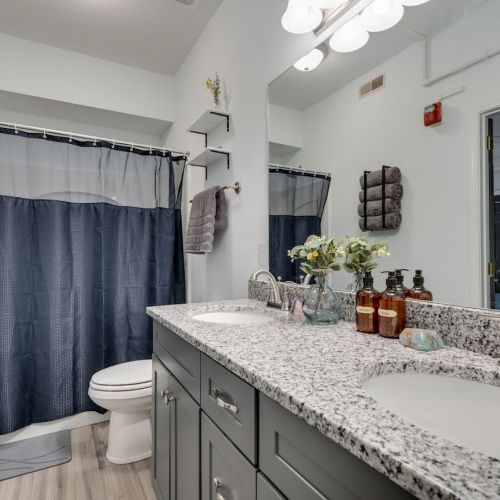

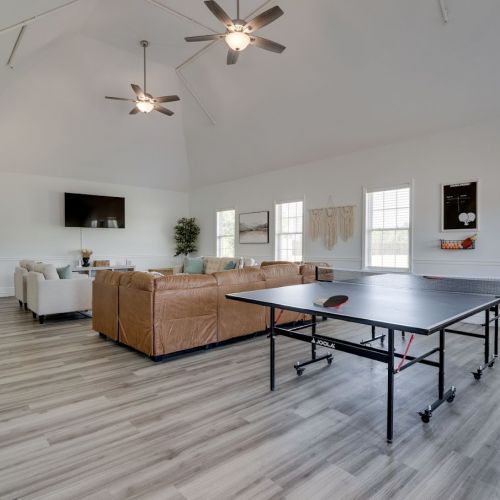




Why Consider Tennessee Detox Center for an Outpatient Program?
When people search outpatient treatment Tennessee, they are often looking for a schedule and a location. What they actually need is clarity. They need to know what level of care makes sense, what the first few weeks should look like, and how to avoid the common trap of starting too low, slipping, then feeling like treatment “did not work.”
Tennessee Detox Center can be a smart starting point because outpatient care works best when it is chosen for the right reasons, at the right time, and with a realistic plan.
The biggest value is getting the level of care right from the beginning
Outpatient addiction treatment Tennessee can be effective, but only when it matches the person’s risk level and support system. If someone needs more structure than standard outpatient can provide, starting too low can set them up for quick relapse and a lot of discouragement.
A proper clinical assessment helps answer questions like:
- Is outpatient rehab Tennessee appropriate right now, or is a higher level of care safer?
- If outpatient is appropriate, should the starting point be standard outpatient or an intensive outpatient program?
- Are there mental health symptoms that need integrated care, such as outpatient treatment, dual diagnosis Tennessee support?
- Is trauma driving cravings, sleep issues, or emotional shutdown, which may call for outpatient addiction treatment for trauma Tennessee?
- Is outpatient medication-assisted treatment Tennessee clinically appropriate to support early stability?
When those questions are addressed up front, people waste less time, avoid more false starts, and usually feel more confident about the plan.
Outpatient works better when it is part of a full continuum plan, not a standalone idea.
A lot of relapse happens during transitions. Someone finishes a more intensive level of care, goes home, and suddenly their days are unstructured again. Or someone starts outpatient, but there is no clear plan for what happens if cravings spike or attendance drops.
Tennessee Detox Center can help make outpatient care part of a bigger, step-by-step plan that accounts for real life. That includes planning for high-risk times, building accountability, and tightening support when needed, rather than waiting for a crisis to occur.
It helps to have a team that understands both sides, stabilization, and long-term follow-through.
Many people who need outpatient drug rehab in Tennessee or outpatient alcohol rehab Tennessee support are not only dealing with the substance. They are dealing with sleep problems, anxiety, relationship conflict, shame, and stress that keeps pushing the same old buttons.
A good outpatient plan does not pretend those things will magically resolve once someone stops using. It builds treatment around them. It also includes practical relapse-prevention strategies, clear expectations, and a realistic aftercare plan so that recovery does not fade once the schedule lightens.
The goal is a plan you can actually live with
If the outpatient program Tennessee care is going to work, it has to fit your life. Not perfectly, but realistically. It should account for your work schedule, family responsibilities, transportation, and mental health needs. It should also be honest about what is and is not safe.
That is the standard the Tennessee Detox Center aims for: a clear recommendation, a practical path forward, and a treatment plan built to hold up outside the therapy room.
What a Typical Week Looks Like in an Outpatient Program in Tennessee
Most people considering outpatient treatment Tennessee want one practical answer before anything else: what does this actually look like week to week?
The honest answer is that it depends on the level of care. Outpatient programs in Tennessee range from lower-intensity support to a more structured weekly routine, such as an intensive outpatient program. The right fit is based on safety, relapse risk, mental health symptoms, and how much structure you need to stay consistent.
Here is what a typical week in outpatient rehab in Tennessee often includes, using real-world terms instead of vague promises.
Standard outpatient schedule, lower intensity support
A standard outpatient program for substance use in Tennessee usually includes a mix of individual therapy and group therapy, but with fewer total hours per week than IOP.
This level is often a good fit when someone is medically stable, has a stable home environment, and needs ongoing support rather than daily structure.
A typical week may include:
- One individual therapy session focused on patterns, triggers, and relapse prevention planning
- One to two group sessions focused on coping skills, accountability, and recovery education.
- Optional family sessions if rebuilding trust and communication is part of the treatment plan
- Progress check-ins that help the plan stay active instead of drifting
This is often where people land after stepping down from more intensive care or after building a stable foundation and want to maintain momentum without a heavy weekly schedule.
Intensive outpatient structure, more frequent support
An intensive outpatient program in Tennessee is designed for people who need more contact than standard outpatient can provide. It is still outpatient treatment for addiction Tennessee, meaning you live at home, but the time commitment is higher, and the structure is tighter.
A typical IOP week may include:
- Multiple group sessions on several days of the week
- Regular individual therapy sessions, often weekly
- Skills-focused work on cravings, triggers, emotion regulation, and relapse prevention.
- More consistent accountability, which may include scheduled check-ins and clear expectations around attendance and participation
This structure can be especially helpful for drug and alcohol outpatient treatment in Tennessee needs when someone is early in recovery, has had repeated false starts, or is stepping down from a more structured setting and wants to avoid a sudden drop in support.
What actually happens during sessions
Outpatient substance abuse treatment Tennessee should not feel like a weekly lecture. Strong programs are active and skill-driven.
Across outpatient drug rehab Tennessee and outpatient alcohol rehab Tennessee, sessions commonly focus on:
- Understanding personal relapse patterns, not just avoiding substances
- Building coping skills for high-risk emotions like stress, anger, shame, loneliness, and boredom
- Practicing real-world communication skills, especially around boundaries and conflict
- Planning for high-risk moments, weekends, paydays, social events, family stress, and sleep disruption
- Repairing routines, because daily structure is one of the most reliable relapse prevention tools
If outpatient treatment for dual diagnosis in Tennessee is part of the plan, sessions should also address the mental health side directly. That may include tools for anxiety management, depression related withdrawal and apathy, trauma-related triggers, and the ways mood symptoms interact with cravings.
Medication support within outpatient care
If outpatient medication-assisted treatment in Tennessee is clinically appropriate, it typically fits into the schedule in a structured way. Medication appointments, follow-up monitoring, and coordination with counseling are what make it effective.
Medication support works best when it is not treated like a separate track. It should be integrated into the relapse prevention plan, with clear expectations for follow-through, communication about side effects, and continued therapy that addresses the drivers behind use.
Time of day and flexibility
Many people worry outpatient treatment Tennessee will not fit their schedule. In practice, outpatient programs often provide multiple scheduling formats, such as daytime groups, evening groups, or a mix, depending on the provider.
The point is not to find a schedule that feels convenient. The point is to find one you can actually keep, even during busy weeks.
A useful way to choose is to ask yourself one blunt question: “When I am stressed, what is the most realistic time for me to show up consistently?” The right outpatient program Tennessee schedule is the one you will attend when motivation is low.
Start Your Recovery Journey at Tennessee Detox Center
Outpatient treatment in Tennessee can be a solid next step if you need real clinical support. Still, you also need to keep living at home and handling work, school, or family responsibilities. The key is to be placed at the right level of outpatient care from the start, so you are not trying to force a light schedule to solve a heavy problem.
Tennessee Detox Center offers three outpatient tiers: Partial Hospitalization Program, Intensive Outpatient Program, and standard outpatient, so the weekly structure can match what is actually happening in your life right now.
PHP is the most intensive option, IOP is a step down or a direct entry point for people who need more support than traditional outpatient, and standard outpatient is typically lighter and focused on ongoing therapy and maintenance.
If alcohol is involved, it is also important to be honest about withdrawal risk. Some people need inpatient medical detox first, then transition into outpatient care with medication support and therapy.
If you are not sure what level fits, the simplest next step is to talk with the admissions team, explain what is going on, and get clarity on a plan. The goal is not to pressure you. The goal is to help you stop guessing and start moving forward with outpatient addiction treatment in Tennessee that you can realistically stick with.
Frequently Asked Questions about Outpatient Treatment
- Tennessee Detox Center offers three outpatient tiers:
- Partial Hospitalization Program (PHP): 5–7 days/week, 6–8 hours/day
- Intensive Outpatient Program (IOP): 3–5 days/week, 3–4 hours/day
- Standard Outpatient Program: 1–2 sessions/week
These options provide flexibility depending on your needs and lifestyle
This care suits individuals with mild to moderate substance use disorders, those transitioning from inpatient care, or those with a supportive home environment and stable obligations like work or school.
Outpatient treatment features:
- Evidence-based therapies: CBT, DBT, Motivational Interviewing
- Group and family therapy
- Individual counseling
- Medication-Assisted Treatment (MAT)
- Holistic approaches like mindfulness and life-skills training.
Yes. Tennessee Detox Center offers medication management to address cravings, including options available after detox to support ongoing recovery.
Clients undergo a comprehensive evaluation by addiction specialists and mental health professionals. The assessment reviews substance use history, mental health, and personal goals to craft a personalized treatment plan.
- Time commitment: Outpatient allows you to continue daily routines (work, school), while inpatient requires full-time residency.
- Cost: Outpatient is more cost-effective due to no room and board.
- Environment: Outpatient supports applying new coping strategies in real-life settings
Yes. Family therapy is an integral part of outpatient care, aimed at improving communication, rebuilding trust, and fostering a supportive recovery network.
Program length varies based on individual progress and needs. While PHP and IOP run several times a week, the overall duration is tailored during the initial assessment.
Get Family Support Now
Supporting Families Through Recovery
We understand addiction affects the whole family. Our comprehensive family program helps rebuild trust and restore relationships.
Weekly Family Therapy Sessions
Educational Workshops
Support Groups
Communication Skills Training
American Addiction Centers. (n.d.). Residential rehab guide. https://americanaddictioncenters.org/rehab-guide/residential
Substance Abuse and Mental Health Services Administration. (n.d.). Find treatment. https://www.samhsa.gov/treatment
Substance Abuse and Mental Health Services Administration. (n.d.). Medications for substance use disorders. https://www.samhsa.gov/medications-substance-use-disorders
Centers for Disease Control and Prevention. (2023). Understanding the overdose epidemic. https://www.cdc.gov/drugoverdose/epidemic/index.html
Morin, A. (2022, November 8). What is residential treatment? Verywell Mind. https://www.verywellmind.com/what-is-residential-treatment-5205312
National Institute on Drug Abuse. (2020). Treatment and recovery. https://nida.nih.gov/publications/drugs-brains-behavior-science-of-addiction/treatment-recovery

Medically Reviewed By:
Dr. Vahid Osman, M.D.
Board-Certified Psychiatrist and Addictionologist
Dr. Vahid Osman is a Board-Certified Psychiatrist and Addictionologist who has extensive experience in skillfully treating patients with mental illness, chemical dependency and developmental disorders. Dr. Osman has trained in Psychiatry in France and in Austin, Texas. Read more.

Clinically Reviewed By:
Josh Sprung, L.C.S.W.
Board Certified Clinical Social Worker
Joshua Sprung serves as a Clinical Reviewer at Tennessee Detox Center, bringing a wealth of expertise to ensure exceptional patient care.
Read More
The Joint Commission – The Gold Seal of Approval® signifies that Tennessee Detox Center meets or exceeds rigorous performance standards in patient care, safety, and quality. It reflects a commitment to continuous improvement and clinical excellence.
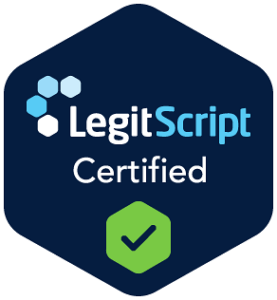
LegitScript Certified – Confirms that Tennessee Detox Center operates in full compliance with laws and regulations, and meets high standards for transparency and accountability in addiction treatment marketing.
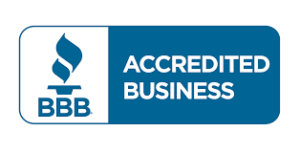
BBB Accredited – Demonstrates ethical business practices, commitment to customer satisfaction, and a trusted reputation within the community.
Psychology Today Verified – Indicates that Tennessee Detox Center is listed on Psychology Today, a trusted directory for verified mental health providers and treatment centers.
HIPAA Compliant – Ensures all patient health information (PHI) is protected and managed in accordance with strict federal privacy and data security standards.
ASAM Member – Tennessee Detox Center is a proud member of the American Society of Addiction Medicine (ASAM), reflecting a commitment to science-driven and evidence-based treatment standards.

Rutherford County Chamber of Commerce – Membership signifies active participation in the local community and support for regional growth and civic collaboration.
- Addiction Group. (n.d.). Tennessee drug and alcohol statistics. Retrieved July 28, 2025, from https://www.addictiongroup.org/tennessee/drug-statistics/
- Substance Abuse and Mental Health Services Administration (SAMHSA). (2023). 2023 ICCPUD state report: Underage drinking prevention – Tennessee. U.S. Department of Health and Human Services. Retrieved from https://library.samhsa.gov/sites/default/files/tennessee-iccpud-state-report-2023.pdf
- Tennessee Alcoholic Beverage Commission. (2024). Report to prevent underage drinking, drunk driving, and other harmful uses of alcohol (PC 961). State of Tennessee. Retrieved from https://www.tn.gov/content/dam/tn/abc-documents/abc-documents/PC-961-2024-Report-to-Prevent-Underage-Drinking-Drunk-driving-and-Other-Harmful-Uses-of-Alcohol.pdf
- National Institute on Alcohol Abuse and Alcoholism (NIAAA). (2012). Alcohol withdrawal syndrome. In S. C. Merrill & B. S. Frances (Eds.), The management of alcohol use disorders: A practical guide for clinicians (NIH Publication No. 12–5191). National Center for Biotechnology Information. Retrieved from https://www.ncbi.nlm.nih.gov/books/NBK64119/
- https://www.ncbi.nlm.nih.gov/books/NBK507689/
- [2] https://www.samhsa.gov/find-support/learn-about-treatment/types-of-treatment
- [3]
- https://www.ncbi.nlm.nih.gov/books/NBK551500/
- [4] https://www.samhsa.gov/substance-use/treatment/options
- [5] https://www.nami.org/blog/understanding-dual-diagnosis/

Medically Reviewed By:
Dr. Vahid Osman, M.D.
Board-Certified Psychiatrist and Addictionologist
Dr. Vahid Osman is a Board-Certified Psychiatrist and Addictionologist who has extensive experience in skillfully treating patients with mental illness, chemical dependency and developmental disorders. Dr. Osman has trained in Psychiatry in France and in Austin, Texas. Read more.

Clinically Reviewed By:
Josh Sprung, L.C.S.W.
Board Certified Clinical Social Worker
Joshua Sprung serves as a Clinical Reviewer at Tennessee Detox Center, bringing a wealth of expertise to ensure exceptional patient care.
Read More
The Joint Commission – The Gold Seal of Approval® signifies that Tennessee Detox Center meets or exceeds rigorous performance standards in patient care, safety, and quality. It reflects a commitment to continuous improvement and clinical excellence.

LegitScript Certified – Confirms that Tennessee Detox Center operates in full compliance with laws and regulations, and meets high standards for transparency and accountability in addiction treatment marketing.

BBB Accredited – Demonstrates ethical business practices, commitment to customer satisfaction, and a trusted reputation within the community.
Psychology Today Verified – Indicates that Tennessee Detox Center is listed on Psychology Today, a trusted directory for verified mental health providers and treatment centers.
HIPAA Compliant – Ensures all patient health information (PHI) is protected and managed in accordance with strict federal privacy and data security standards.
ASAM Member – Tennessee Detox Center is a proud member of the American Society of Addiction Medicine (ASAM), reflecting a commitment to science-driven and evidence-based treatment standards.

Rutherford County Chamber of Commerce – Membership signifies active participation in the local community and support for regional growth and civic collaboration.
Hear directly from those who have walked the path to recovery. Our patients’ stories highlight the compassionate care, effective programs, and life-changing support they’ve experienced. Let their journeys inspire you as you take your first steps toward healing.
Thank you all so much!
The facility itself is clean, well-maintained, and equipped with all the necessary amenities to provide a serene and supportive environment.
What truly stands out is the personalized approach to care. The team developed a treatment plan tailored to my specific needs, incorporating both medical and holistic therapies. This comprehensive approach not only addressed my physical withdrawal symptoms but also supported my mental and emotional well-being.
The counselors and therapists offer a range of therapies that helped me understand the root causes of my addiction and develop effective coping strategies. Group therapy sessions provided a safe space to share experiences and gain insights from others on similar journeys.
Overall, my experience with this medical detox program was life-changing. The compassionate and skilled staff, combined with the personalized treatment approach, provided me with the foundation I needed for a successful recovery. I highly recommend this facility to anyone seeking a safe and supportive environment for detox and recovery.
But it's the people who make this place truly special. The staff, they've been there, they understand the struggle. No judgment, just support, encouragement, and a genuine desire to help you heal. They treated me like an old friend, even though I was just visiting for my buddy.
They've got a whole range of therapies to help you on your journey – individual counseling, group sessions, and even a fitness center to get you moving again. It's not just about detox. It's about rebuilding your life from the ground up.
My friend, the owner, he's living proof that this place works. He poured his heart into creating a haven for those seeking recovery, and his passion shines through in every detail.
So, if you're ready to take that first step, this is the place. Trust me, they'll walk beside you every step of the way.



